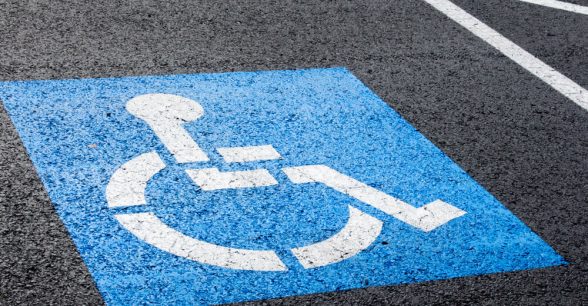Disabled People Have the Right to Live Happily Ever After
“The freedom to marry has long been recognized as one of the vital personal rights essential to the orderly pursuit of happiness by free men.” – Chief Justice Earl Warren, Loving v. Virginia, 388 U.S. 1 (1967)
While there is no law prohibiting disabled people from marrying, in practice there are penalties and restrictions that often limit our freedom to enjoy what Chief Justice Warren called one of the “basic civil rights of man.” Disabled people who depend on medical and financial benefits in order to survive and live independently in the community can find that survival at risk if they choose to marry.
Social Security’s marriage rules are complex and some details vary from state to state. When in doubt, check with a lawyer, your local SSA office, and the Social Security Handbook. Someone who receives Social Security Disability Insurance (SSDI) — disability benefits based on their own past work history — will usually get to keep their full benefits because they are not means-based benefits. That means a person will continue to receive SSDI even if they have another source of income, including the shared resources of marriage.
Many disabled people, however, receive Supplemental Security Income (SSI) – benefits for those who have never worked or who have worked but did not accumulate enough work credits to entitle them to enough SSDI to live on that money alone. When a person who receives SSI gets married, they risk losing some or all of their benefits, depending on their spouse’s income. Along with SSI benefits, the disabled person might also lose their Medicaid.
Losing medical coverage can be a literal matter of life or death for many disabled people who could not afford the life-sustaining medical care they need if forced to pay for it out of pocket.
If two people who are both on SSI marry each other, they will lose 25% of their income and 25% of their resource or savings limit. Since SSI already puts an individual below the poverty threshold, losing a quarter of that small amount of money can be enough to sink a household. Additionally, disabled people who receive Childhood Disability Benefit (CDB) – a benefit for those who became disabled before age 22 – stand to lose their benefits if they marry someone who does not receive any Social Security benefits.
While all these penalties do not infringe on a disabled person’s right to marry, they make the consequences of marriage so harsh that only 24% of SSI recipients over age 18 are married, compared to 57% of the general population.
The Special Needs Alliance, an organization of attorneys offering advice on disability and public benefits law, has useful checklists of questions SSI recipients should explore before committing to marriage. While this information is crucial in the short-term, our long-term goal must be reforming the punitive regulations that make marriage impoverishing or life-threatening for disabled people who receive SSI and Medicaid benefits.
Marriage is a basic civil right, as has been demonstrated by the race-based marriage court cases in the 1960s and the gender-based marriage battles today. We must not let disability-based marriage penalties destroy our choices. Disabled people deserve the freedom to secure the legal protections of marriage, build loving families, raise children together, and enjoy everything else that comes with the social and legal institution of marriage.
About Rooted In Rights
Rooted in Rights exists to amplify the perspectives of the disability community. Blog posts and storyteller videos that we publish and content we re-share on social media do not necessarily reflect the opinions or values of Rooted in Rights nor indicate an endorsement of a program or service by Rooted in Rights. We respect and aim to reflect the diversity of opinions and experiences of the disability community. Rooted in Rights seeks to highlight discussions, not direct them. Learn more about Rooted In Rights




Yes there are benefits provided to disabled persons. But further after marriage it depends upon the partners income that whether the person will receive the further benefits or not. But they have equal rights to marry and raise their children like others.